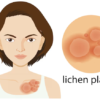Understanding Teeth Grinding (Bruxism) and Ayurvedic Approaches to Treatment
Understanding Teeth Grinding (Bruxism) and Ayurvedic Approaches to Treatment, known medically as bruxism, is a common condition affecting individuals of all ages. While it often occurs during sleep, many people may grind their teeth during waking hours due to stress or anxiety. In addition to the discomfort and potential damage to teeth, bruxism can lead to various health issues, including headaches, jaw pain, and disrupted sleep. Traditional medicine typically addresses these symptoms, but many people are seeking holistic approaches like Ayurveda for a more balanced solution.
What is Bruxism?

Bruxism is characterized by the involuntary grinding, clenching, or gnashing of teeth. It can be classified into two types:
- Sleep Bruxism: Occurs during sleep and is often associated with snoring or sleep apnea.
- Awake Bruxism: Happens while awake and is usually triggered by stress, anxiety, or concentration.
Symptoms of Bruxism
- Tooth wear or damage
- Jaw pain or discomfort
- Headaches, particularly in the temples
- Earaches
- A tight feeling in the jaw
- Increased tooth sensitivity
Causes of Bruxism
The causes of bruxism can be multifaceted, including:
- Psychological Factors: Stress, anxiety, and depression are significant contributors to teeth grinding.
- Lifestyle Choices: Consumption of caffeine, alcohol, and tobacco can exacerbate the condition.
- Sleep Disorders: Conditions such as sleep apnea can lead to bruxism.
- Dental Issues: Misaligned teeth or an abnormal bite can also trigger teeth grinding.
The Ayurvedic Perspective
Ayurveda, an ancient Indian system of medicine, emphasizes a holistic approach to health. It considers the balance of three doshas—Vata, Pitta, and Kapha—as crucial for overall well-being. Bruxism can be linked to an imbalance in these doshas, particularly Vata and Pitta.
Doshas and Bruxism
- Vata: Often associated with movement and change. When Vata is imbalanced, it can lead to anxiety and stress, which may trigger bruxism.
- Pitta: Linked to heat and transformation. An excess of Pitta can result in irritability and aggression, further contributing to teeth grinding.
Ayurvedic Diagnosis
Ayurvedic practitioners will typically conduct a thorough assessment, considering not just the symptoms but also the individual’s overall constitution (Prakriti) and current state (Vikriti). This personalized approach allows for tailored treatments that address the root cause of the condition.
Ayurvedic Treatments for Bruxism
- Dietary Recommendations A balanced diet can significantly influence overall health and help manage bruxism. Ayurveda suggests the following dietary adjustments:
- Warm, Cooked Foods: Emphasize warm, nourishing foods that are easy to digest. This helps calm the Vata dosha.
- Avoid Stimulants: Reduce or eliminate caffeine and alcohol, as these can increase anxiety and lead to teeth grinding.
- Stay Hydrated: Drink plenty of water to keep the body hydrated and maintain balance.
- Herbal Remedies Several herbs can help alleviate the symptoms of bruxism by promoting relaxation and reducing stress:
- Ashwagandha: Known as a powerful adaptogen, ashwagandha helps manage stress and anxiety.
- Brahmi: This herb supports cognitive function and reduces mental fatigue, promoting calmness.
- Tulsi (Holy Basil): Helps in reducing stress and improving mental clarity. These herbs can be consumed in various forms, including powders, teas, or capsules, as recommended by an Ayurvedic practitioner.
- Oil Pulling An ancient Ayurvedic practice, oil pulling involves swishing oil (often sesame or coconut) in the mouth for about 15-20 minutes. This practice can help detoxify the oral cavity, reduce inflammation, and promote overall dental health.
- Relaxation Techniques Stress management is crucial in treating bruxism. Ayurvedic practices such as yoga and meditation can significantly help reduce stress levels. Techniques include:
- Pranayama (Breath Control): Specific breathing exercises can help calm the mind and reduce anxiety.
- Meditation: Regular meditation can help center the mind and promote relaxation, thereby reducing the urge to grind teeth.
- Massage and Acupressure Gentle massage of the jaw and facial muscles can relieve tension. Acupressure points around the jaw and neck can also help relax the muscles associated with bruxism. An Ayurvedic practitioner may guide you in these techniques.
- Lifestyle Modifications Making certain lifestyle changes can also help manage bruxism:
- Sleep Hygiene: Maintain a regular sleep schedule, create a relaxing bedtime routine, and ensure a comfortable sleep environment.
- Regular Exercise: Engage in physical activity to reduce stress and promote overall well-being.
Conclusion
Understanding Teeth Grinding (Bruxism) and Ayurvedic Approaches to Treatment is a multifaceted condition that can significantly impact quality of life. While traditional medicine often focuses on alleviating symptoms, Ayurveda offers a holistic approach that addresses the underlying imbalances contributing to teeth grinding. By incorporating dietary changes, herbal remedies, relaxation techniques, and lifestyle modifications, individuals can manage bruxism effectively and improve their overall health.
If you’re struggling with bruxism, consider consulting an Ayurvedic practitioner for personalized guidance. Embracing this ancient wisdom may lead you to a more balanced, peaceful life, free from the discomfort and challenges associated with teeth grinding. Remember, a holistic approach to health not only targets symptoms but nurtures the body, mind, and spirit.








Leave a reply